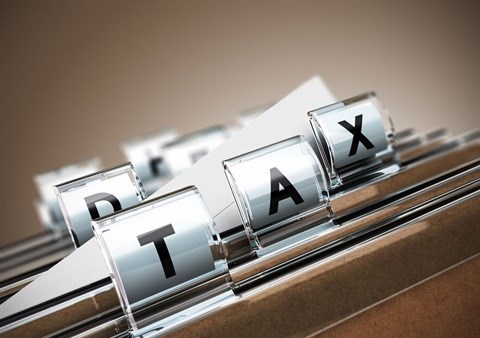
Top stories


ESG & Sustainability#BudgetSpeech2026: SRD grant unchanged, other Sassa social grants see hike
8 hours




More news











ESG & Sustainability
South Africa’s carbon tax should stay: climate scientists explain why










This is according to Old Mutual Investment Group senior economist, Johann Els, who adds that this is not altogether bad news, and should indeed be welcomed.
"The recent positive news on interest rate increases being deferred due to better-than-expected inflation figures and lower fuel prices will be tempered somewhat by bad news on tax increases. But government's strategy is on the right path towards fixing the economy, which will ultimately benefit everyone, including the wealthier segment of the market."
Government will seek to raise additional revenue to the tune of R44bn over the next three years, with possible avenues for this including raising the individual income tax marginal rate, raising capital gains and dividends tax, increasing the fuel levy and increasing the VAT rate, says Els.
"It will be easy to not only reach, but even exceed, the additional R12bn revenue target set for the coming financial year without raising company taxes. And this is a positive for our country's economy from a ratings perspective and for an overall healthier fiscal position. This improved economic position will be great news and if markets do well under a healthier fiscal policy and a reduced deficit then, even though wealthier individuals will be paying higher taxes, they will reap the benefits elsewhere.
"This includes the benefit from the increase in their capital, favourable interest rates and improved investment sentiment. So, although February's Budget announcement could introduce short-term pain, it is quite likely to come with longer-term gain," he explains.
Els says that economists and analysts have been very positively surprised by the recognition on the part of the Treasury in October last year that it is now or never for setting the country back on the right economic path, by not only increasing revenue but also cutting spending.
"In the Medium-term Expenditure Framework, the new minister surprised very positively, contrary to market expectations. Perhaps there had been a realisation that ratings agencies were very serious about downgrading the country due to worrying fiscal policies. Furthermore, it was indicated that the situation would not only be addressed by increasing income, but also, surprisingly by cutting expenditure."
"Given the substantial drop in the petrol price, we are already likely to start seeing the economy performing better. Economic growth, especially on the consumer spending side, will improve, which will help grow revenue faster than expected at the time of the budget policy statement. But taxes will be raised and, in terms of the available options, the increased revenue will clearly come mainly from the higher income earners."
Els says that R2.5bn could be raised for every 1% increase in the top marginal rate. "An increase in the effective rate of capital gains tax could unleash R1bn for every 2% increase and by pushing up dividend tax by 1%, R1.4bn of additional funds could be raised for the fiscus.
Although there have been rumours about a new wealth tax, the matter has not been raised in official circles at all. And even if such a tax were to be announced next month, it would still take a substantial amount of time before being introduced, because of regulatory processes."
Els believes that there could also be a raising of fuel levies - easier now that the petrol price has dropped - which could raise R2.1bn for every 10c/litre increase. The big issue which will affect all taxpayers remains the speculation about the VAT rate, he says.
"Although raising the VAT rate would undoubtedly be politically unpopular, its announcement would be tempered by the raising of top-end individuals' income taxes, capital and dividend rates. The next national elections are a long way off, so now would be the time to do it, especially considering that we have a very low VAT rate compared to the rest of the world, and raising it by only 1% would bring in an additional R15bn in revenue."
Els says that within the context of the potential scenario above, high net worth individuals should stick to their long-term investment strategy. "SA's overall fiscal position could very possibly become significantly healthier, taking pressure off the Reserve Bank to raise interest rates and creating a more positive response on the part of ratings agencies.
"So it will be a good news story for the overall economy, which will enhance one's current strategy in terms of performance and returns from the market," he concludes.